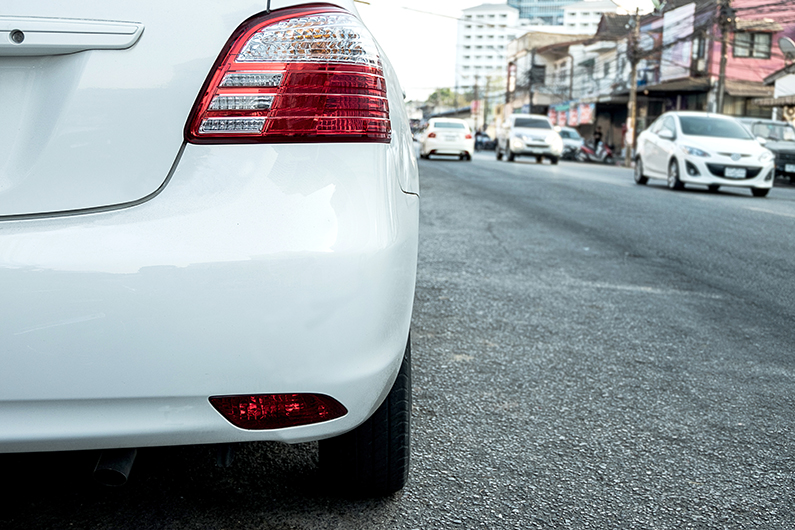More news
- Focus on the global coatings market: Global coatings market outlook
- View from the UK: Navigating chemical policy and sustainability
- Focus on adhesives: Unveiling unbreakable bonds – Testing redefines physical strengt...
- Focus on adhesives: Henkel and Covestro collaborate for sustainability of engineered wood ...
- Advances in construction chemical technology: What’s new in 2024?

In the world of autonomous driving, cars must “learn” to recognise obstacles and dangers in good time and react appropriately to them. This is the most important prerequisite for ensuring the safety of all road users. Innovative sensor technologies are indispensable for this. The sensitive instruments are best mounted on the roof as the highest point of the vehicle to ensure the most complete overview of the environment.
The automotive supplier Webasto has developed the prototype of a Roof Sensor Module (RSM) in an elegant design. It is equipped with a polycarbonate panel for aesthetic and seamless integration of sensors for automated and autonomous driving. For the module’s bezel, Covestro supported with its injection moulding expertise at the technical centre at its Headquarters in Leverkusen.
The bezel is produced on Covestro’s 2300-tonne injection moulding machine. The first shot is made of the transparent polycarbonate Makrolon® AG, which is highly permeable to various sensor signals. For the second shot, the black, mineral-reinforced PC-ABS Bayblend® T95 MF is used. Thanks to the combination of both materials, the roof module meets high mechanical requirements while offering an attractive design with glass-like surfaces and transparent sensor windows.
Integration of components and coating
In addition, the combination of these materials provides the necessary design freedom for the integration of all relevant electronic and mechanical components. Many of such parts are furthermore attached by elements that are formed in the second shot. Suitable potential coating systems for the RSM are polysiloxane coatings, which are sprayed via a high-speed rotary bell to ensure homogeneous layer thicknesses over the entire component surface.
READ MORE:
Manufacturing in the Middle East: PPCJ speaks to Delta Coatings
In use, radar and lidar sensors, as well as cameras, measure the distance and speed of objects in front of and next to the vehicle and also reliably detect traffic lights, traffic signs and road markings. In order to function optimally, the temperature of the electronics must be regulated. This is ensured by an integrated thermal management system. The high heat deflection resistance of polycarbonate ensures that the roof module remains in shape even at high outside temperatures and strong sunlight and that the functionality of the sensors is not impaired.
The Makrofol® ST polycarbonate film, which is introduced in specific sections and is characterised by a defined transmission spectrum in the visible and infrared range, enables a seamless design with high transparency for LiDAR signals. In addition, the film serves as a carrier for Canatu’s transparent heating system. This de-icing function as well as the specially developed cleaning system ensure flawless operation even under adverse weather conditions.
All in all, this development offers not only a portfolio of engineering solutions, but also concepts for developers of advanced driver assistance systems (ADAS) who need reliable and cost-effective bezels for their 3D imaging systems.
At the international VDI Congress PIAE on June 19 and 20, 2024 in Mannheim, Germany, Covestro expert Christoph Klinkenberg and Head of Research and Development Magnus Sviberg from Webasto Roof & Components SE will give a presentation on this development on June 19 from 12:15 p.m. The co-author is Rainer Hagen from Covestro. The company will also be exhibiting at the accompanying exhibition.
Image caption: Modules for autonomous driving need room on the roof of a car. High performance plastics make it possible. © Webasto







